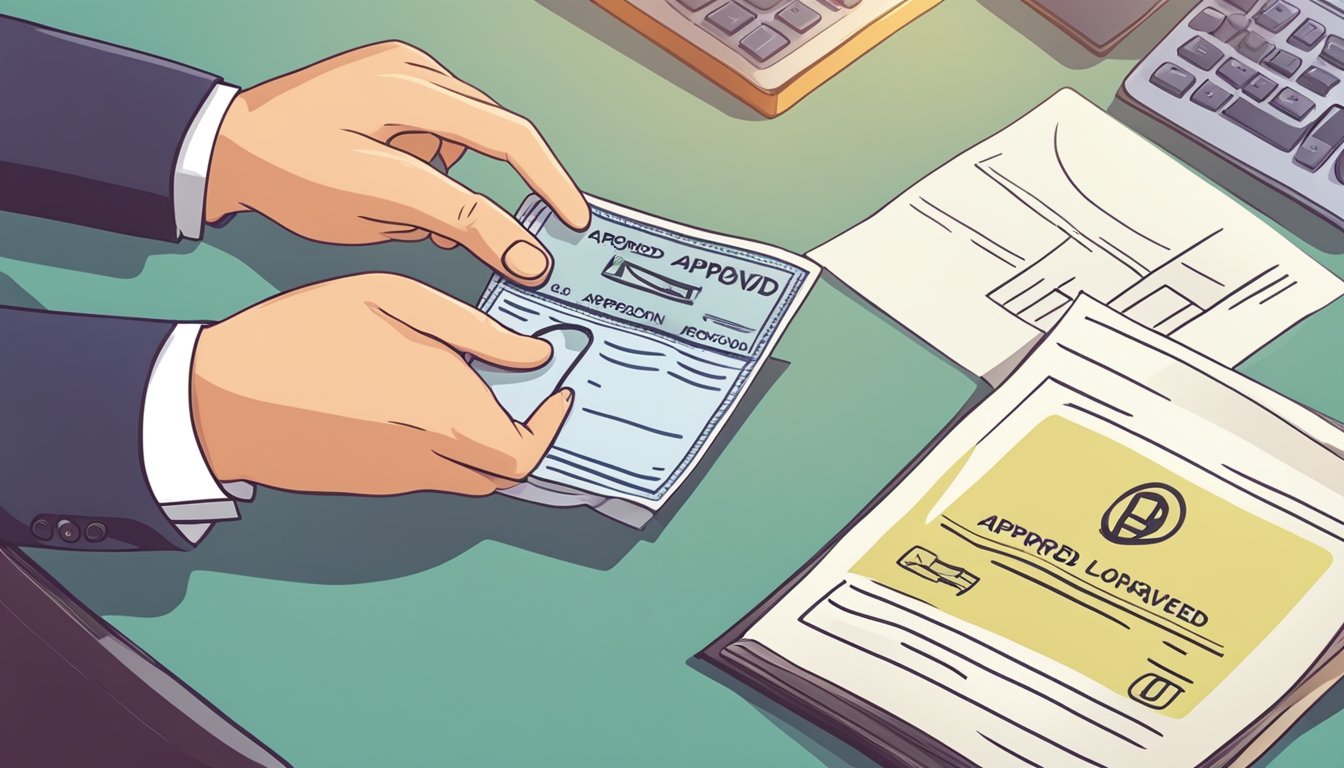If you’re considering applying for a personal loan, you’re not alone. Many people in Singapore turn to personal loans to help them finance their goals, whether it’s to pay off credit card debt, fund a home renovation, or cover an unexpected expense. But before you apply, it’s important to understand the approval process and eligibility criteria.

To qualify for a personal loan, you’ll typically need to meet certain requirements set by the bank or lender. This may include being a Singapore citizen or permanent resident, having a certain minimum income, and having a good credit score. Once you’ve determined that you meet the eligibility criteria, you can begin the application process.
The loan approval and disbursement process can vary depending on the bank or lender you choose. Some lenders may offer instant approval and disbursement, while others may take several days to process your application. It’s important to read the terms and conditions carefully and understand the interest rates, fees, and repayment terms before you accept a loan offer.
Understanding Personal Loan Eligibility

If you’re considering taking out a personal loan, it’s important to understand the eligibility requirements to determine whether you qualify. In this section, we’ll go over the criteria for Singaporeans and PRs, requirements for foreigners, and the documents and information needed to apply.
Criteria for Singaporeans and PRs
To be eligible for a personal loan in Singapore, you must be a Singapore citizen or permanent resident. You must also meet the minimum annual income requirement set by the bank, which can vary depending on the institution. Generally, the minimum annual income requirement for personal loans is around $20,000. Additionally, your credit score and credit history will be taken into consideration by the bank when assessing your eligibility.
Requirements for Foreigners
Foreigners are also eligible for personal loans in Singapore, but they must hold a valid Singapore employment pass or work permit. The minimum annual income requirement for foreigners is typically higher than for Singaporeans and PRs, ranging from $30,000 to $60,000 depending on the bank. Foreigners must also provide additional documentation to support their application, such as a passport and proof of employment.
Documents and Information Needed
When applying for a personal loan, you’ll need to provide various documents and information to the bank. This includes your NRIC or passport, SingPass or MyInfo login details, supporting documents such as your notice of assessment or bank statements, and information about your employment and income. Some banks may also require additional documentation, such as proof of address or employment.
In summary, to be eligible for a personal loan in Singapore, you must be a Singapore citizen, permanent resident, or a foreigner with a valid employment pass or work permit. You must also meet the minimum annual income requirement set by the bank and provide the necessary documents and information to support your application.
Loan Approval and Disbursement

Getting approved for a personal loan can be a straightforward process if you understand the application process, interest rates and fees, and how to receive your funds. Here’s what you need to know:
The Application Process
To apply for a personal loan, you’ll typically need to provide personal information and documentation such as your identification card, proof of income, and bank statements. The approval process can take anywhere from a few minutes to a few days, depending on the lender. Some lenders offer instant approval, which means you can receive a decision on your application within minutes.
Understanding Interest Rates and Fees
When you apply for a personal loan, you’ll be charged interest and fees. Interest is the cost of borrowing money, and it’s usually expressed as an annual percentage rate (APR). The APR includes the interest rate and any other fees associated with the loan, such as a processing fee.
It’s important to understand the interest rate and fees associated with your loan, as they can affect your monthly instalment and loan tenure. Some lenders offer flexible repayment terms, which means you can choose a loan tenure and monthly repayment that works for you.
Receiving Your Funds
Once your loan is approved, you’ll receive your funds through loan disbursement. Some lenders offer instant disbursement, which means you can receive your funds through an ATM or cheque within minutes of approval. Others may take a few days to process and disburse your loan.
It’s important to note that if you’re using your loan to pay off an existing debt, you may be able to save money by using a balance transfer. This allows you to transfer your existing debt to a new lender with a lower interest rate, which can save you money on interest over time.
Overall, personal loans can be a great way to meet your financial needs, whether it’s for emergency medical bills, car repairs, or other unexpected expenses. By understanding the loan approval and disbursement process, you can make an informed decision and choose a loan that works for you.
Frequently Asked Questions

How swiftly can I expect to receive approval for a personal loan?
The time it takes to receive approval for a personal loan varies depending on the lender and the type of loan you are applying for. Typically, online lenders tend to approve loans faster than traditional banks, with some offering same-day approval. However, the approval process may take longer if the lender requires additional documentation or information.
What’s the simplest way to secure a personal loan from a bank?
The simplest way to secure a personal loan from a bank is to have a good credit score and a steady income source. It’s also important to compare different loan options and choose a lender that offers competitive rates and flexible repayment terms. Applying for a loan online may also be more convenient and faster than visiting a bank branch.
Could you tell me how to ascertain if I’m eligible for a personal loan?
To ascertain if you’re eligible for a personal loan, you should check the lender’s eligibility criteria. Typically, lenders require borrowers to be at least 18 years old, have a steady source of income, and have a good credit score. You may also be required to provide documentation such as proof of income and identification.
What are the typical requirements for instant personal loan approval?
Instant personal loan approval is typically reserved for borrowers with excellent credit scores and a proven track record of repaying loans on time. Lenders may also require borrowers to have a high income and low debt-to-income ratio. It’s important to note that instant approval may not always be possible, and some lenders may require additional documentation or information before approving your loan.
Is it possible to obtain a cash loan rapidly without furnishing documents in Singapore?
While it may be possible to obtain a cash loan rapidly without furnishing documents in Singapore, it’s important to be cautious of lenders that offer such loans. These lenders may charge high interest rates and fees, and may not be licensed or regulated by the government. It’s important to do your research and choose a reputable lender that offers reasonable rates and terms.
What calculative measures can I take to gauge my potential for personal loan approval?
To gauge your potential for personal loan approval, you can use a loan calculator to estimate your monthly payments and interest rates. You can also check your credit score and credit report to ensure that there are no errors or inaccuracies that could affect your eligibility. Additionally, you can compare different loan options and choose a lender that offers the best rates and terms for your financial situation.




